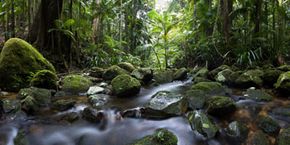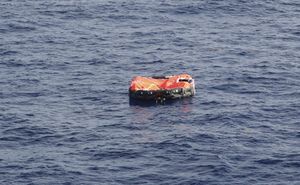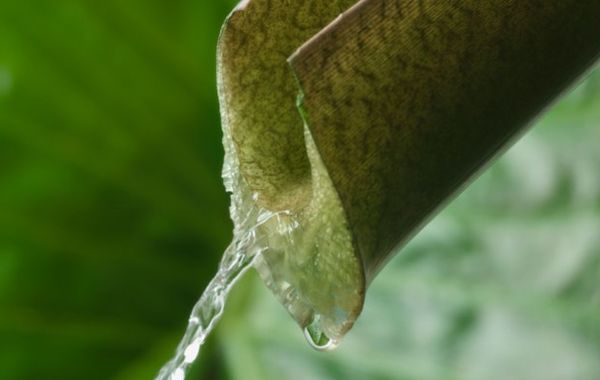That adventure vacation in the Amazon rainforest isn't working out so well. Things were going great until poachers ravaged your camp, stole everything of value, beat you and left you for dead. Now you're alone with nothing but the clothes on your back. If only the marauders had left something behind to help you survive, like a machete or a first-aid kit or your bag of freeze-dried meals. If only you had one solid survival tool.
There are quite a few tools that would help you to survive this kind of scenario. A machete, for example, could help you hack through the dense underbrush and lead you to civilization. Stars are a good way to find your bearings, but under the canopy of the rainforest, you're lucky to find a clearing large enough to see anything stellar. So maybe a compass and a map would be your most valuable tools.
Advertisement
Could a gun be what you need most? After all, you're pretty much dead meat if you wander up on a mother jaguar feeding her young. And, you could use the weapon to hunt. Or perhaps a good survival knife is the ticket. You'd be able to hack down underbrush, protect yourself against danger, hunt wild boar and cut branches to build a shelter. Most survival knives also come with a nice little stash of goods stored in their hollow handles -- fishing hooks and line or some safety matches to start a signal fire. Some of them even come with a compass.
What about a mosquito net or some heavy-duty insect repellent? After all, mosquitoes in the jungle can give you malaria, yellow fever, West Nile virus and Dengue fever. Not to mention the fact that they're a total nuisance and will make your life miserable. Then again, you'll be mighty hungry, so a bag full of freeze-dried dinners could help you to survive for a while and give you the energy to hike to rescue.
While all of these things are pretty handy in the jungle, none of them are the absolute best tools if you're trying to survive for an extended period of time. So, what's the most valuable? Click ahead to find out.
Advertisement














